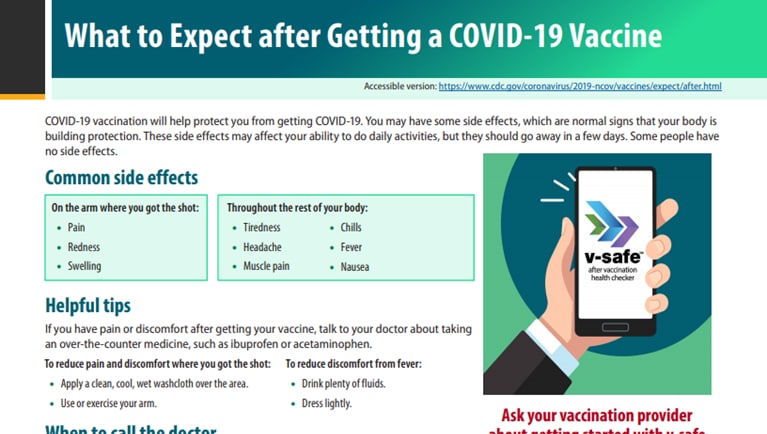

So far, 19% of fully vaccinated people in the U.S. the study found a 30-fold rise in antibody levels after a Moderna booster. The CDC notes that if any "redness or tenderness" near your injection site gets worse after 24 hours, or if your side effects don't seem to be dissipating after a few days, you should contact a doctor or healthcare provider. Out of seven different vaccines tested, all were found to be safe, and the side effects. The CDC says you shouldn't take these meds before your appointment, because it's unclear whether doing so could interfere with the vaccine effectiveness. Pop an OTC pain medication - like Tylenol or Advil - after your appointment.

Apply a cold compress to the spot where you got your shot, to reduce any swelling and injection site pain.It might be sore, but moving your arm will help promote blood flow and relieve any muscular pain. Use the arm where you got your shot normally, and even exercise it a little bit.Stay hydrated and wear lightweight, comfortable clothing to cope with symptoms like fevers and chills.Here are some home remedies and strategies that may help alleviate the symptoms from your booster: The Nuvaxovid (Novavax) vaccine is provisionally approved for adults. You might want to clear your schedule in the days following your booster shot, just in case - but most discomfort is a sign that the vaccine is working as intended, helping your immune system mount protection against the virus. Up-to-date information for Spikevax (Moderna), including details of potential side effects, can be found in the Consumer Medicine Information (for consumers) and Product Information (for health professionals). They all typically dissipate within two to three days, at the most. Less common side effects include nausea and swollen or sore lymph nodes.
#Moderna booster side effects plus
The most common side effects for all three boosters should sound familiar: pain and swelling at the injection site, fatigue, muscle pain, headache, fever, plus chills and nausea. Pfizer's booster is the same dosage as its first two shots. Moderna and J&J's boosters are just smaller doses of their original formulations, which could also lessen your side effects. A booster essentially gives your body more practice at mounting a defense against Covid. That's largely because your first and second doses have already established a virus-fighting blueprint for your immune system. The CDC describes typical Covid booster side effects as "mild to moderate," compared to the "intense" ones that often follow a second dose. If you felt side effects from your last vaccine dose, you'll likely feel similar ones after your booster - but in less severe ways. Food and Drug Administration and CDC gave all adults the green light to get a booster shot six months after their second dose of an mRNA vaccine, or two months after getting Johnson & Johnson's one-shot vaccine. Rochelle Walensky said in a White House briefing Tuesday. "People had fewer reactions after their third dose than after their second dose," CDC director Dr.


 0 kommentar(er)
0 kommentar(er)
